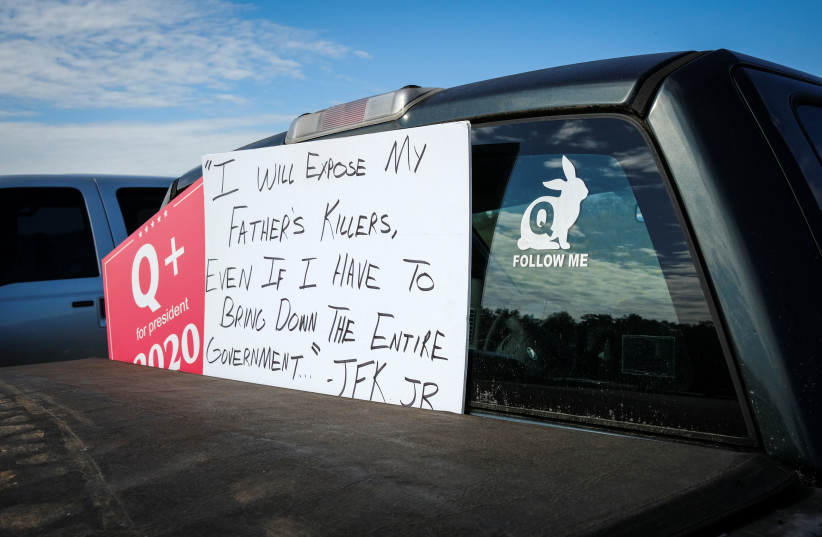Americans who lean conservative in their political beliefs are no more likely to believe in conspiracy theories than liberals, according to a new study. This finding contradicts years of literature, beginning with Richard Hofstadter’s 1964 book, The Paranoid Style, that claimed otherwise.
The peer-reviewed study published by Political Behavior was conducted by a team of five American political science researchers and one Briton.
They argued in the study that previous findings that showed people of a particular political orientation as more likely to believe in conspiracy theories are flawed because they "are the result of researchers’ choices and assumptions.” Furthermore, the political context during which surveys were conducted likely influenced the results.
To obtain a broad picture, the researchers analyzed correlations between partisanship and beliefs in 52 conspiracy theories in the US. Five content-controlled conspiracy theories were also examined, as well as the relationship between political orientation and the predisposition to view circumstances as the product of conspiracies.
The content of the theory determines who believes in it

One of the primary findings of the study was that the relationship between belief in a conspiracy theory and political orientation is dependent on the conspiracy theory itself. “When the conspiracy theory implicates actors associated with the political left in wrongdoing (e.g., Birther), or are endorsed by Republican and conservative elites (e.g., Global Warming Hoax), Republicans/conservatives exhibit greater levels of belief than Democrats/liberals,” the study stated.
“Likewise, when the conspiracy theory implicates actors associated with the political right (e.g., Koch Brothers World Control), or are endorsed by Democratic and liberal elites (e.g., Trump is a Russian Asset), Democrats/liberals exhibit greater levels of belief than Republicans/conservatives.”
In addition, many conspiracy theories are equally supported by both sides of the political spectrum. “Regardless of who is officially in charge of governments and other organizations, there is a single group of people who secretly control events and rule the world together,” is one example.
A second finding noted that Democrats and Republicans both accuse the other party of conspiring. Five of 10 tests conducted yielded similar results between supporters of the two parties, and the remaining five demonstrated that Democrats tend to engage in partisan conspiracy endorsement more than Republicans. When classified by ideology, liberals were more engaged than conservatives in motivated conspiracy theory endorsement in six of the tests.
Lastly, the study found that there is no systematic relationship between conspiracy thinking — bias towards interpreting circumstances as a result of conspiracies orchestrated by the powerful — and political orientation. Surveys revealed that the correlation between the two was a mere 0.03.
Theories that target Jews exemplify the findings
The propensity of both sides of the political spectrum to believe in conspiracy theories equally is evident in the variety of theories that attack Jews. Both the Left and the Right have historically placed Jews at the centre of conspiracy theories including world domination and control of the media.
Antisemites on the Left have recently fueled such theories with the mapping project, which ties Jewish and Zionist institutions to “harms that we see as linked, such as policing, US imperialism, and displacement/ethnic cleansing.” On the Right, a survey found that almost half of QAnon supporters believed that the rise of liberalism allowed Jews to destroy institutions and gain control of the world.
While different in nature, both are, nonetheless, conspiracy theories. According to the study, it is important to realize that there are differences between conspiracy theories in terms of both their content and their impact.
“That we find little difference in conspiracy theorizing between the right and left among the mass public does not indicate that there are no differences between partisan elites on this score, nor does it imply that there will not be asymmetries in beliefs in specific conspiracy theories at any given point in time,” the study said.
“The content of those theories and the way they are deployed, particularly by elites, can result in asymmetrical consequences, such as political violence and the undermining of democratic institutions.”
“The content of those theories and the way they are deployed, particularly by elites, can result in asymmetrical consequences, such as political violence and the undermining of democratic institutions.”
The study authors
